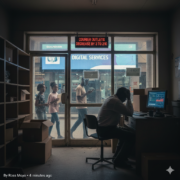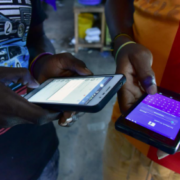Deputy Finance and Economic Development Minister Hon Terence Mukupe says the Reserve Bank of Zimbabwe (RBZ) needs to reform to address the economic issues facing this country.
Speaking at the Zimbabwe Currency Dialogue 2017 event hosted by Econometer Global Capital at Meikles Hotel in Harare, Hon Terence Mukupe addressed some of the shortcomings of the RBZ in its fight to arrest the cash crisis in the country, calling for it to restructure and revolutionize.
By Pearson Mbendera
“The Central Bank needs to reform and the same must be said of its people. It is not in-sync, it is not in line with the status quo. We can come up with fancy policies but if we do not restructure and revolutionize the Central Bank, we are going no where,” said Mukupe.
The cash crisis inherent in this country has seen the proliferation of the use plastic money in daily transactions. But while most banks and mobile money services have benefited from this crisis, making hefty profits, the average Zimbabwean has suffered. RBZ has done nothing to address this problem.
RBZ has failed to manage the Nostro accounts, empting the coffers, creating a negative Balance of Payments position which is not ideal especially in an economy heavily dependent on imports with only a few exports that can be used to refill the empty foreign currency coffers.
The deputy minister also added that there hasn’t been much action taken against the bankers that have overseen the failing of many banks in Zimbabwe, a situation that has affected members of the public financially.
The RBZ Governor Dr. John Mangudya had said he would resign if Bond Notes fail, he hasn’t heed the public calls urging him to resign having ignored the plea of the people not to introduce the Bond Notes.
The public had urged the Central Bank not to introduce the pseudo-currency in the form of Bond Notes but to join the Common Monetary Area (CMA) and start using the South African Rand while stabilising the economy and making it conducive enough for the introduction of a stable, permanent local currency.
Technology has enabled us to transact with ease using mobile money facilities and even using mobile application and the internet to fast track transactions but the costs involved aren’t ideal for the vast majority of Zimbabweans who are forced to pay a premium for using plastic money, denting their already insufficient wallets.
The parallel or black market has been thriving with the advancement of technology in financial transactions. While this is not the first time that foreign currency has been sold in exchange for bank transfers in Zimbabwe, technological advancement have made such transfers to be instant, thus, feeding into and speeding up the process with which parallel dealers get to trade foreign currency.
At the moment, the RTGS amount is more than the cash reserves, meaning that people cannot withdraw all their monies in the bank at once, hence the cash shortage situation we are having that has necessitated banks putting limits on the amount of money people can withdraw.
While many banks and mobile money services have taken some tremendous steps to make financial transactions easier, through mobile applications like ZIPIT or EcoCash’s ‘Swipe into EcoCash‘ system, the costs still remain high, making hard cash more desirable. Because of this, people turn to the black market for solutions, with the measure put to address cash shortages, also going a long way in creating a macroeconomic imbalances in the system.











Comments